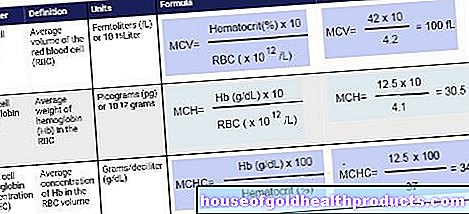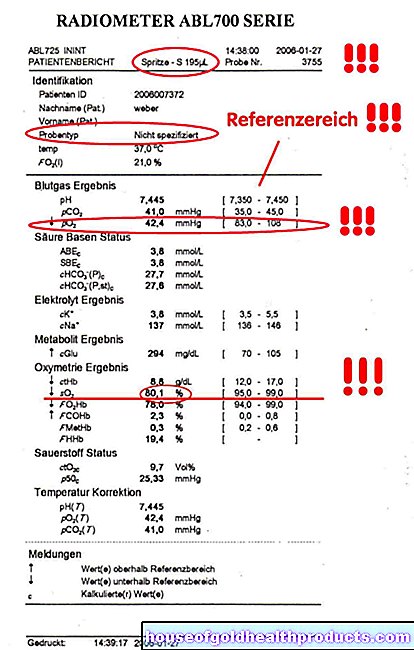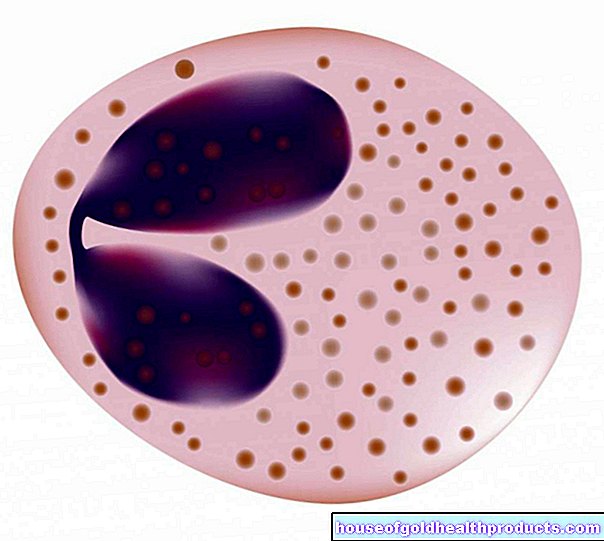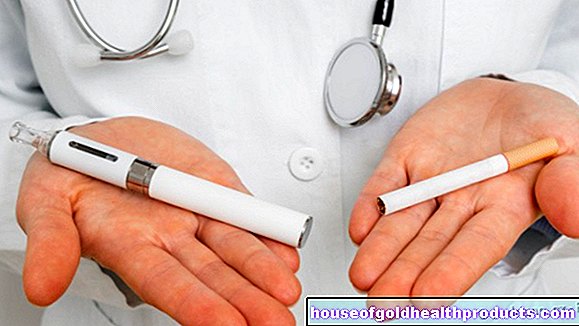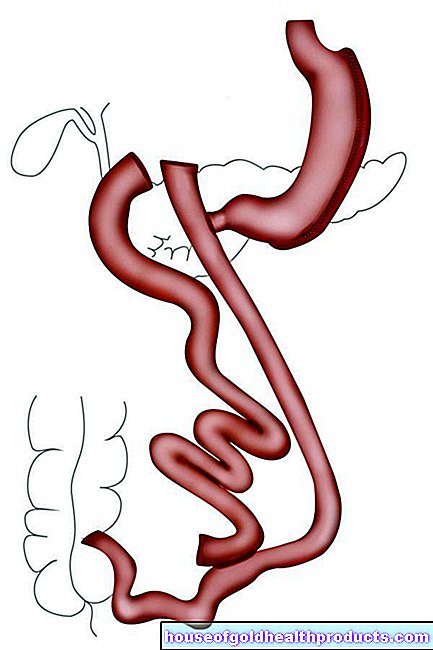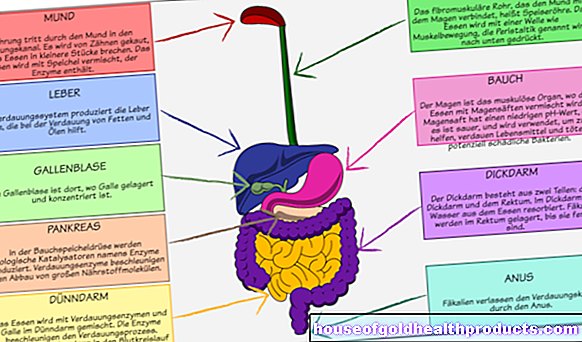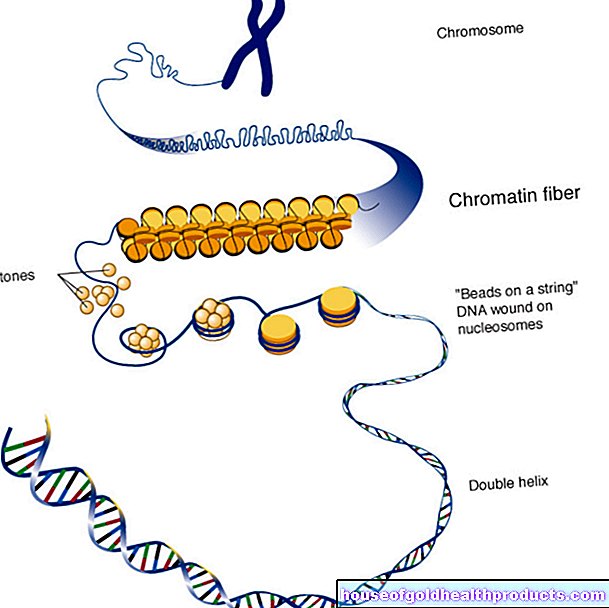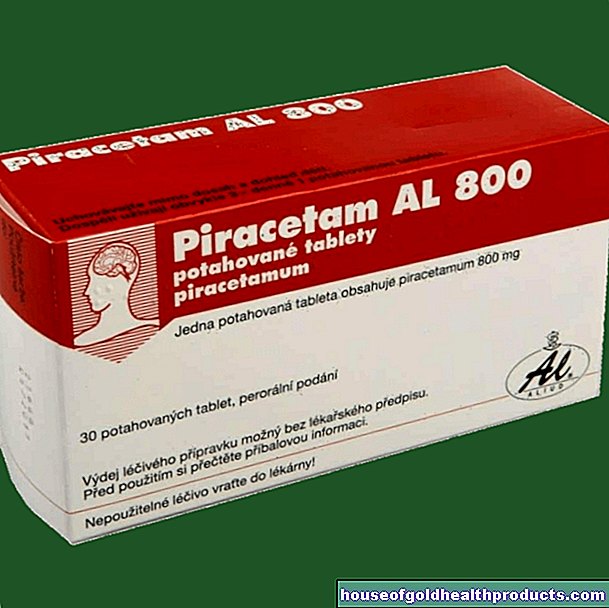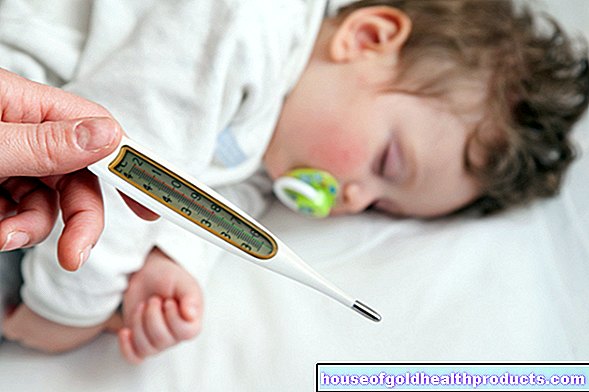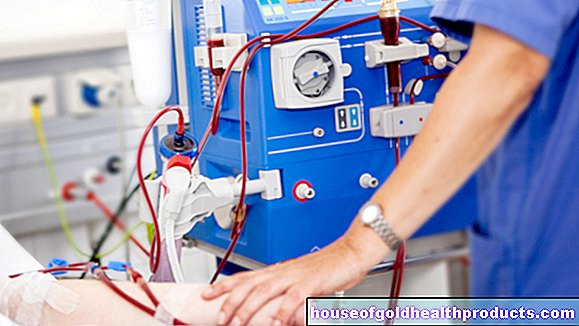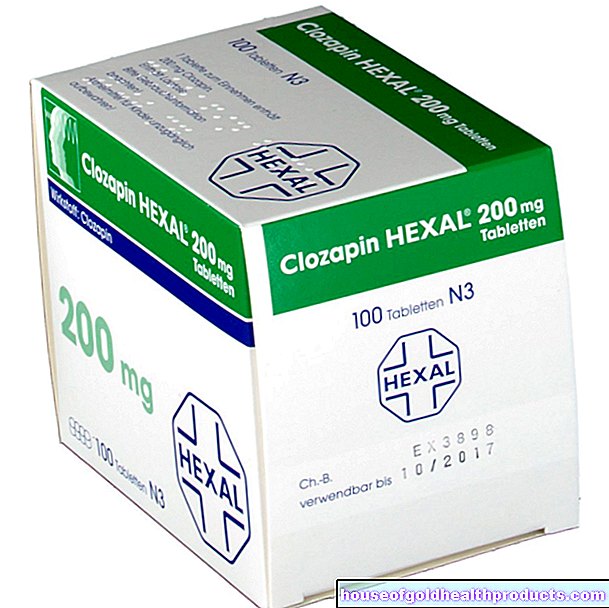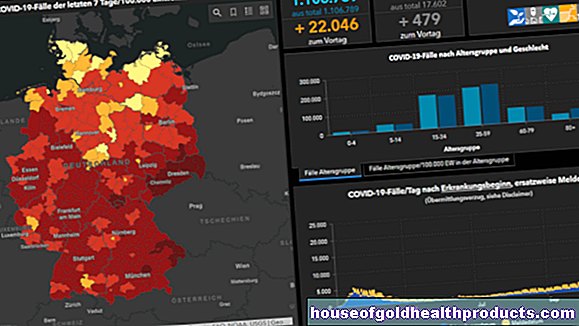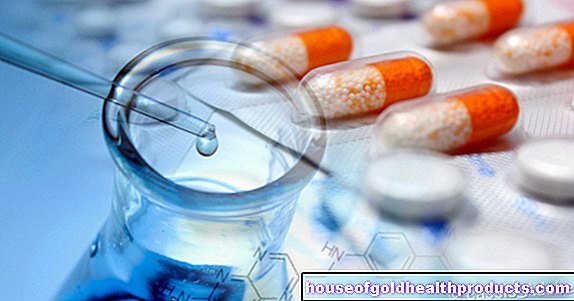Digitoxin
All content is checked by medical journalists.Digitoxin is a cardiac glycoside that increases the performance of the heart and thus improves blood flow. It is used in the treatment of heart failure (heart failure) and irregular heartbeat. Here you can find out more about the application, effects and side effects of Digitoxin.
This is how Digitoxin works
Digitoxin inhibits an enzyme (the magnesium-dependent Na / K-ATPase) that is anchored in the cell membrane and that transports sodium ions out of the cell and, in return, potassium ions into the cell. This increases the sodium concentration inside the cell, while at the same time the potassium concentration in the cell decreases. The increased sodium concentration now affects the sodium / calcium exchanger, which now transports fewer calcium ions out of the cell.
As a result, more calcium ions are stored in the so-called sarcoplasmic reticulum (a compartment within the cell) during the relaxation phase (diastole) of the heart. If the heart contracts (systole), correspondingly more calcium ions are released from the store.
Digitoxin increases the contraction force of the heart muscles (positive inotropic effect). Furthermore, Digitoxin slows down the heart rate (negative chronotropic effect) and inhibits the conduction of excitation (negative dromotropic effect).
Uptake, breakdown and excretion of digitoxin
Digitoxin is usually taken by mouth (oral application), sometimes also administered directly into a vein (intravenous application). After oral administration, the active ingredient is almost completely absorbed into the blood in the digestive tract. The effect of the heart drug sets in after about 20 to 120 minutes when given intravenously, and only a little later when given orally. A large part is metabolized in the liver.
Digitoxin stays in the body for a very long time. Half of the active ingredient is only excreted six to eight days after administration (elimination half-life). 60 percent of the elimination takes place with the urine and 40 percent with the bile with the stool.
When is Digitoxin used?
Digitoxin is used for:
- acute and chronic heart failure (heart failure)
- Atrial fibrillation
This is how Digitoxin is used
Digitoxin is usually prescribed as a tablet. The dosage is determined individually.
The therapy is started with a saturation: In the first three to five days, patients usually take 0.05 to 0.1 milligrams of digitoxin three times a day. Thereafter, the dose is reduced to an average of 0.07 milligrams per day.
What are the side effects of Digitoxin?
The most important side effects of Digitoxin include irregular heartbeat, headache, drowsiness, impaired color vision (yellow vision), nausea and vomiting. Other undesirable effects are also possible, such as confusion, restlessness, acute psychosis, delirium, epileptic fits, skin rash, enlargement of the mammary glands in men (gynecomastia) and a decrease in the number of blood platelets (thrombocytopenia).
What should be considered when using Digitoxin?
Digitoxin must not be used in the following cases:
- known hypersensitivity to digitoxin
- dilated cardiomyopathy (abnormal enlargement of the heart muscle)
- chronic cor pulmonale ("lung heart")
- acute inflammation of the heart muscle (myocarditis)
- increased or decreased potassium level in the blood (hyper- / hypokalaemia)
pregnancy and breast feeding period
Cardiac glycosides such as Digitoxin may be used during pregnancy for heart failure and as a remedy for cardiac arrhythmias in the mother or the unborn child.
If possible, other active ingredients (such as acetyldigoxin, digoxin) should be used during breastfeeding. If it is necessary to use Digitoxin, it should be decided on a case-by-case basis whether the woman must stop breastfeeding beforehand.
Interactions
Digitoxin can interact with other active substances taken at the same time. This can affect the effects and side effects of the heart medicine or other drugs.
For example, the simultaneous use of certain diuretics (potassium uretic diuretics) or corticosteroids (“cortisone”) increases the risk of cardiac arrhythmias.
If activated charcoal is used at the same time (for diarrhea or poisoning) or cholestyramine (cholesterol lowering agent), it may be necessary to increase the digitoxin dose. The same applies if rifampicin (antibiotic) or phenobarbital (for anesthesia and against epilepsy) are used in addition to the heart medicine. Interactions can also occur with simultaneous administration of beta blockers (cardiovascular drugs).
How to get digitoxin medication
Digitoxin requires a prescription and is therefore only available at the pharmacy upon presentation of a doctor's prescription.
Tags: baby toddler menopause hospital